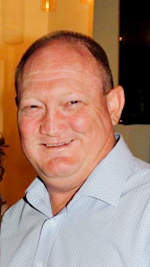Scheduling Conundrum: Transit Schedulers - They Get No Respect
I recently met with a former colleague who I have not seen since the pandemic began. When we got around to discussing the Mass Transit scheduling articles, his quick response was, “Is it really all that complicated; how hard can it be to make a schedule?” Then a little over an hour and a half later I heard that sentiment echoed again by another colleague when she mentioned that her husband made a similar comment as she prepared a new signup. I (unintentionally) answered those questions for my wife when she joined me at the Canadian Urban Transit Association scheduling course in 2016. At the end of the course, she admittedly understood why I went crazy for a period of about a month and a half at least three times a year (the rest of the year I really can’t defend myself).
While repeating this ad nauseum; from friends and loved ones up to some top executives, transit scheduling is more complicated and misunderstood than anyone realizes. During an interview with a software company a couple of years ago, one interviewer actually asked if I was up to the challenge of working for a change. Good schedulers make it look easy by finding ways to make the schedule work no matter the assignment. In its simplest form we want to move the customer between points A and B. It gets complicated when compounded with agreements, spread time, passenger and driver satisfaction, etc. Is there anyone out there who wants to do a backflip on a balance beam because a gymnast made it look easy?
In my world, scheduling the needs of the customer exceed all other concerns and should be the driving force behind any schedule. I believe if you do right by the customer, the agency will benefit, but not everyone shares my opinion as demonstrated in the following survey.
A poll posted on LinkedIn by Transport Toolkit in Australia asked whether schedulers and planners would prioritize service or efficiency. The question posted was, “Schedulers often have to make a choice to reduce run times to get a trip link that saves a peak bus but cause some late running. What would you do? [sic]”
• Efficiency, save a peak bus?
• Customer, leave as is?”
The survey didn’t offer any context and required a gut reaction. Of the 19 respondents, 42 percent would save a peak bus, while 58 percent favored the customer’s needs. This demonstrates how complicated this business can be with huge impacts on the agency and riders we serve. What happens if a scheduler does not fully comprehend the agency’s operating framework, and more importantly, can they create the types of schedules required?
There are consultants and schedulers who are great technicians and can save your agency money on the front end but can cost you more with customer and driver dissatisfaction on the back end. Other schedulers massage the schedule on the front end with the hope of better overall results, including bigger savings.
The larger question is, does anyone in your agency other than the scheduler really understand how they create the items that become the driving force behind your agency? My wager is that most agencies do not know or realize what the scheduler is doing until there is a problem, and even then, you might not recognize or comprehend the real root cause. Is it really all that complicated? How hard can it be?
----
Craig Dunn, director, transport integration for Transport for NSW in Sydney, Australia, co-authored this column.

Ed Dornheim | Consultant
Ed Dornheim is expert transit scheduler with decades of experience beginning with the Southeastern Pennsylvania Transportation Authority (SEPTA) as a part-time Traffic Checker. He worked in various roles at SEPTA along with two stints in scheduling ending as a Chief Schedule Maker, as well as working as the Scheduling Manager at Hampton Roads Transit (HRT) and Scheduling and Planning Manager at Lehigh and Northampton Transit Authority (LANTA).
He began consulting in 2015 with various transit agencies across the United States and Canada.

Craig Dunn | Director Transport Integration for Transport for NSW
Craig Dunn is a public transport specialist, having worked for over 30 years in the Australian transport industry.
Craig has extensive experience in leading transport integration, contract management, regulation, and compliance functions for multi-million-dollar infrastructure projects.
Craig more recently created Transport Toolkit, a collection of online tools and calculators designed to make transport planning easy, efficient, and affordable. For more information go to www.Transporttoolkit.com.
He is currently the Director Transport Integration for Transport for NSW in Sydney Australia, leading the team working across major projects including Northwest Metro (Station Link), CBD & Southeast Light Rail, Parramatta Light Rail and City & Southwest Metro (Bankstown to Sydenham), as well as leading major rail replacement bussing reforms for Sydney Trains.
Craig honed his transport planning and operations skills in the bussing industry (Public & Private), working his way up to lead Comfortdelgro Cabcharge for a number of years as their Chief Operating Officer.


